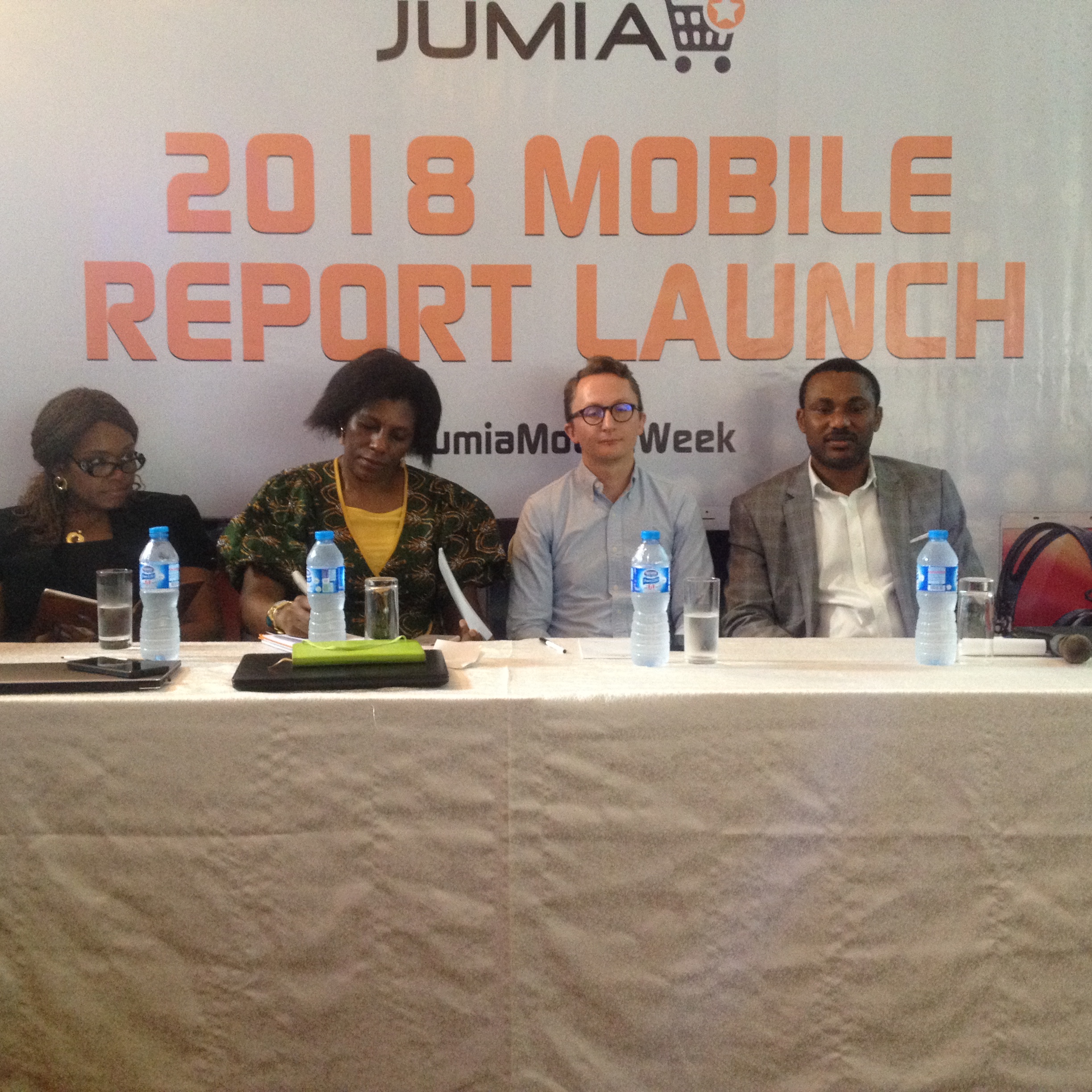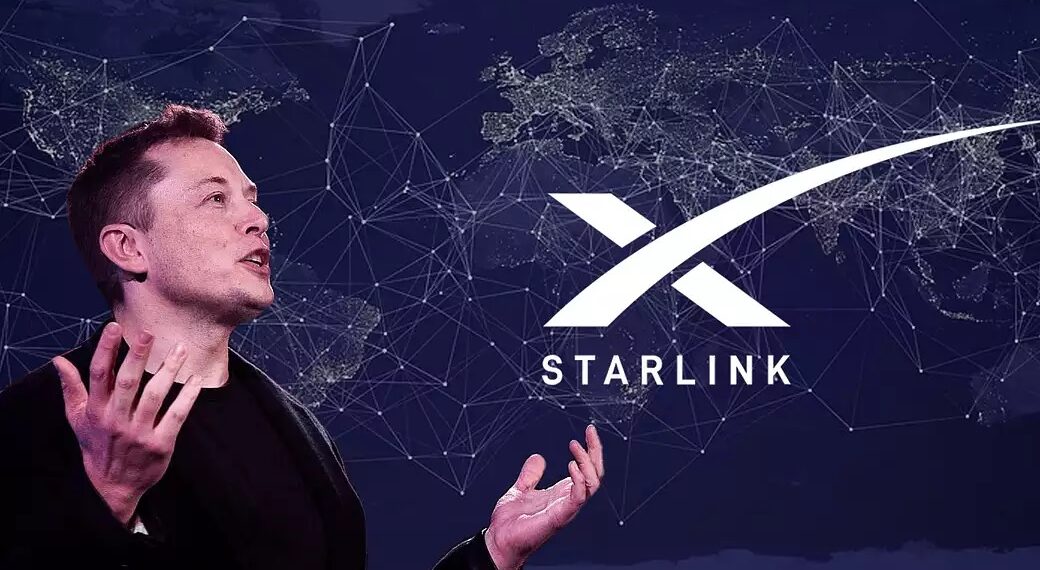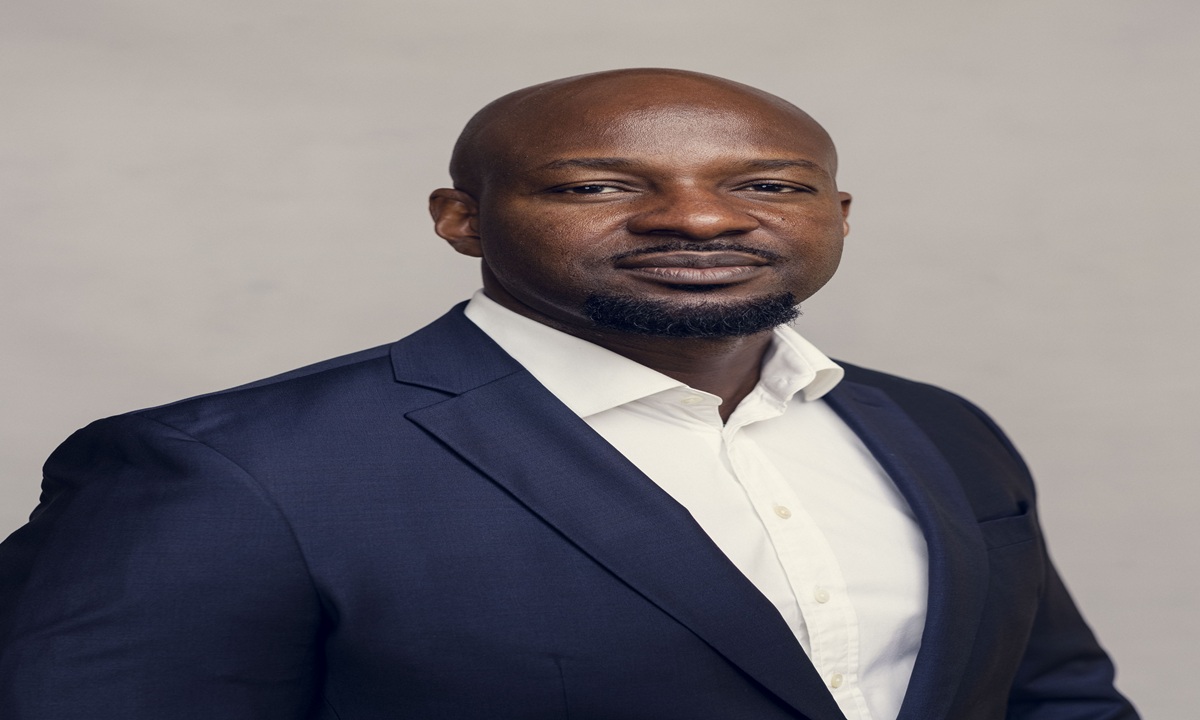Telecom
Jumia Report sees Increase in Mobile phone Accessibility

Statistics released yesterday by Jumia shows that the number of Nigerians who visited Jumia Website via their mobile phones increased by 11%, while those who used their desktop computers or laptops dipped to 18% in 2017 compared with 29% in 2016.
The report also shows that in 2017, 70% of Nigerians preferred the cash on delivery option, compared to 28% & 12% for credit/debit cards and mobile money options respectively.
Juliet Anammah, CEO, Jumia Nigeria, Said this at the launch of the Mobile Report in Lagos, describing the upward shift from desktop to mobile as a positive development.
She attributed the increase in the number of mobile phone users to the multiplicity of affordable smartphones, especially the Asian mobile brands which continue to build on their Africa-specific strategy by introducing lower price points’ smartphones adapted to the profiles of African users.
She also listed a growing market for second-hand devices and the increasing use of social media sites (active social media users) as contributing factors.
Anammah further hinted that “the mobile industry continues to play an increasingly important role in the socio-economic development of the African region.
“As Nigeria swiftly becomes a mobile first country, with mobile phone penetration currently at 84% of the population, Jumia is doing its bit to close the gap with sales initiatives such as Jumia Mobile Week.”
The company said that the stage is set once again for the biggest sale of mobile phones, beginning March 19th through 25th.
This is a mobile-phone-only one-week-long sales event dedicated to opening up our customers to a wide range of mobile devices at half the normal prices.
“We believe that, by end of 2018, at least every Nigerian will have access to a mobile phone,” added Anammah.
In his remark, Olubayo Adekambi, Chief Transformation Officer, MTN Nigeria identified “the expansion of E-commerce into a dual business model that blends the physical and the digital to create an ecosystem between brands and consumers across the two worlds”, as among the major factors fueling the increase in adoption of smartphones.
In order to ensure rural dwellers have increased access to ICT devices such as smartphones, the National Information Technology Development Agency (NITDA) has created an IT Innovation hub, which has the capacity to produce e-literate groups from low skilled or low paid workers, unemployed people, and those with disabilities who do not have access to these ICTs.
Dr. Isa Ali Pantami, Director General NITDA noted that, “NITDA has seen in ICT the potential to change new and old forms of economic activity.
“We’ve created e-Learning Centres to further enrich the rural communities’ quest for learning and for continuous after-school reading and learning by both the students and teachers, among other initiative.,”
The 2018 Mobile Report launch also had other Telecom & IT experts in attendance; as well as a host of Jumia brand partners, such as Techno, Infinix, Samsung etc.
General News
Why Elon Musk Halted Sales of Starlink in Lagos, Abuja

Starlink, the satellite internet provider operated by Elon Musk’s SpaceX, has stopped taking new orders for residential kits in parts of Lagos and in Abuja after network capacity was reached, the company’s online ordering page shows.

Neighborhoods listed as sold out include Victoria Island, Ikoyi, Lagos Island and Surulere.
Prospective customers in those areas can join a wait list by paying a deposit and will be notified when service space opens.
At Chevyville Estate in Lekki, one resident trying to subscribe was met with a message that read: “Starlink service is currently at capacity in your area. However, you can place a deposit now to reserve your spot on the waitlist and receive a notification as soon as service becomes available again.”
That experience mirrors what consumers in other busy districts are seeing.
A Starlink engineer who spoke on condition of anonymity to discuss internal limits said the company temporarily closes new sales in zones where adding customers would degrade service for existing users.
“It happens when the area cannot take a new customer due to its designed capacity at the time,” the engineer said.
“This also helps preserve a steady connection for people already online.” Remedies can include adding more ground infrastructure, securing regulatory clearances, or expanding satellite coverage.
Since entering Nigeria, Starlink’s monthly fee has climbed: the service began at about N38,000 (roughly $25), rose to about N45,000 ($30) and — by 2025 — was charging roughly N56,000 ($37).
Starlink has cited naira depreciation, higher operating expenses and costs tied to meeting rules set by the Nigerian Communications Commission for the increases.
Those higher prices, and the service interruptions, appear to have affected subscription numbers. After a near eight-month pause that began in November 2024 and was tied to limited bandwidth and regulatory issues, orders resumed in late June 2025.
Still, data from the NCC show active Starlink users in Nigeria fell from 65,564 in the fourth quarter of 2024 to 59,509 in the first quarter of 2025, a decline of more than 6,000 users, or about 9 percent.
Analysts point to the price rises, service holds and economic pressure as key reasons for the drop; some customers have switched to cheaper alternatives or stopped service.
As Elon Musk maintains his position as the world’s richest individual, with a net worth of $429 billion (according to the Bloomberg Billionaires Index), his commitment to global digital inclusion through Starlink remains a central focus.
Starlink’s activity in Nigeria is part of a wider push across Africa.
The company has recently moved to enter markets including Lesotho and Somalia and secured permission to operate in the Democratic Republic of Congo after earlier restrictions,
SpaceX is also working with operators such as Airtel Africa to reach rural areas where wired internet is scarce.
For many users in Nigeria, the appeal of Starlink remains clear: a reliable option where terrestrial networks falter.
But until the company expands capacity or adjusts pricing, consumers in dense urban pockets may have to wait for access or turn to other providers.
Credit excluding Headline: Pm News
Telecom
Google Expands Digital Infrastructure with Four New Subsea Cable Hubs and $9m AI Fund for Africa

Google has announced a new set of investments in Africa, reaffirming its nearly two-decade commitment to the continent’s digital transformation.

The latest commitments focus on empowering Africa’s next generation through AI, unlocking opportunities and expanding on the innovation capacity of young Africans. They cover internet connectivity; youth-led learning and innovation; and skills training.
Connectivity
Google is announcing four strategic subsea cable connectivity hubs in the north, south, east and west regions of Africa. This investment creates new digital corridors within Africa and between Africa and the rest of the world – ultimately deepening international connectivity and resilience, as well as spurring economic growth and opportunity.
This is the latest addition to Google’s Africa Connect infrastructure program, which sees the company build vital connectivity across the continent: including the Google Cloud region in Johannesburg serving users across the continent, the Equiano cable running along the entire western seaboard of the continent, and Umoja, the first fiber optic route to directly connect Africa with Australia (running through Kenya, Uganda, Rwanda, Democratic Republic of the Congo, Zambia, Zimbabwe and South Africa).
Google’s investments to date have enabled 100 million Africans to access the internet for the first time, and the Equiano cable alone is expected to increase real GDP this year in Nigeria, South Africa and Namibia by an estimated $11.1 billion, $5.8 billion and $290 million, respectively.
Youth-led learning and innovation
Enabling Africa’s young people to learn, innovate and lead is critical to Africa’s development and economic growth. That’s why Google is today also announcing free one-year subscriptions to Google AI Pro plan for college students (18 or older) across the continent – starting with Egypt, Ghana, Kenya, Morocco, Nigeria, South Africa, Rwanda and Zimbabwe. The subscription provides advanced AI to students – from Deep Research, which helps save time with custom research reports and in-depth information from hundreds of sources across the web, to Gemini 2.5 Pro, which provides help with assignments or writing.
Building skills and solutions
Equipping people with AI skills is critical. To date, Google has trained 7 million Africans and plans to train an additional 3 million students, young people, and teachers by 2030. Google is also bolstering local capacity by providing African universities and research institutions with over $17 million in funding, curriculum, training and compute and access to advanced AI models over the past four years – with an additional $9 million planned for the coming year.
On the announcements, Alex Okosi, Managing Director for Google in Africa, said: “Africa’s digital economy holds immense potential, and it will be driven by the talent and ingenuity of its next generation. Today’s announcements, spanning AI education, advanced tools for students, and expanded connectivity, are a unified investment into the upward trajectory of the continent.
“We are committed to providing the foundational infrastructure, the cutting-edge tools, and the financial support necessary for Africa’s youth to innovate, lead, and build a thriving digital world.”
Google’s long term partnership
These announcements are the latest chapter in Google’s long-term investment in the continent, which has delivered on $1 billion of investment. Google’s sustained commitment to Africa has included driving connectivity; training more than 7 million people across the continent in digital skills to support the future workforce; and supporting 153 startups from 17 African nations through the Google for Startups Accelerator Africa, helping them raise $300 million and create 3,500 jobs.
AI creates an unprecedented opportunity to benefit everyone, and Google is committed to making that a reality for people, businesses and communities across Africa. Today’s announcements are another example of how Google is continuing to expand connectivity, increase product access and skills across the continent and enable African-led innovation – with more to come.
Telecom
MTN Nigeria to Lease Spectrum from T2 Mobile, Ends Agreement with Ntel

MTN Nigeria Communications Plc has secured regulatory approval from the Nigerian Communications Commission (NCC) to lease frequency spectrum from T2 Mobile Limited (formerly 9Mobile), marking a strategic shift in its network expansion plans.

Effective October 1, 2025, MTN will lease 5MHz in the 900MHz band and 15MHz in the 1800MHz band from T2 Mobile for a period of three years.
This move supports MTN’s national roaming agreement with T2, enabling shared infrastructure to manage growing network traffic and improve service delivery
According to MTN Nigeria CEO Karl Toriola, the agreement aligns with the company’s Ambition 2025 strategy, which emphasizes cost-effective, sustainable growth, industry collaboration, and digital inclusion.
In a related development, MTN Nigeria has announced it will not renew its current spectrum lease with Natcom Development and Investment Ltd (Ntel). That lease—covering 5MHz in the 900MHz band and 10MHz in the 1800MHz band across 17 states—is set to expire on November 29, 2025.
MTN reaffirmed its commitment to investing in infrastructure and strategic partnerships to deliver high-quality, innovative telecom services across Nigeria.

 E-Business2 days ago
E-Business2 days agoMicrosoft Seizes 340 Websites Linked to Nigerian-based Phishing Subscription Service

 Broadcasting2 days ago
Broadcasting2 days agoMultiChoice Starts Reorganising Operations to Enable Canal Plus Takeover

 Telecom2 days ago
Telecom2 days agoGalaxy Backbone Achieves ISO Recertification Across Four Key Standards, Boosting Trust, Resilience

 Telecom2 days ago
Telecom2 days agoMTN in Talks with Global Partners to Build AI Data Centers Across Africa

 E-Financial2 days ago
E-Financial2 days agoFG’s New Tax ID Could Frustrate Financial Inclusion Efforts- Omoyele

 E-Financial2 days ago
E-Financial2 days agoCBN Directs Banks to Announce CEO Three Months Before Exit of Outgoing One

 News2 days ago
News2 days agoNigeria’s NIN Enrollment Hits Record 126m

 News2 days ago
News2 days agoOmoyele Sowore Sues DSS, Meta, and X Over Alleged Unconstitutional Censorship























